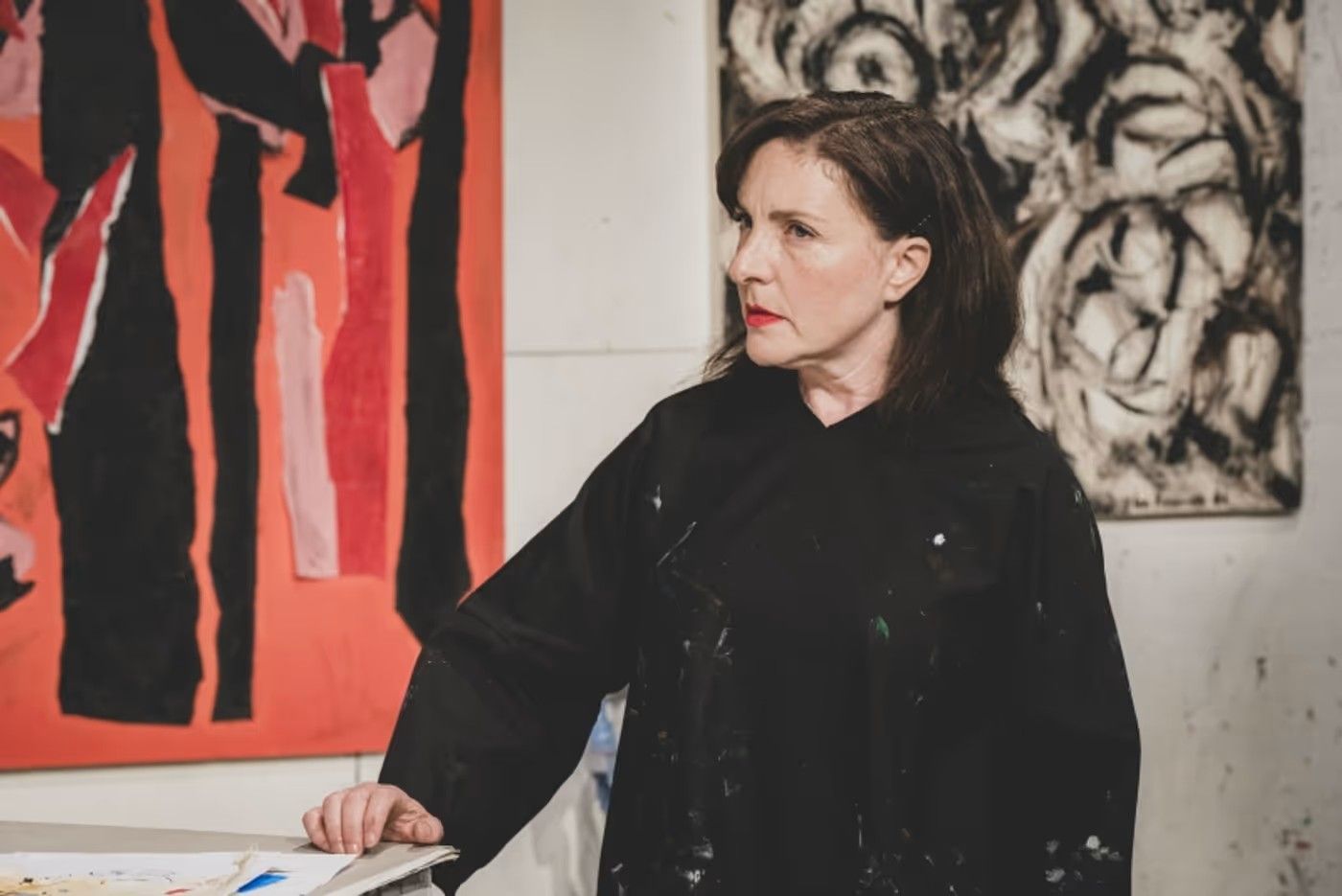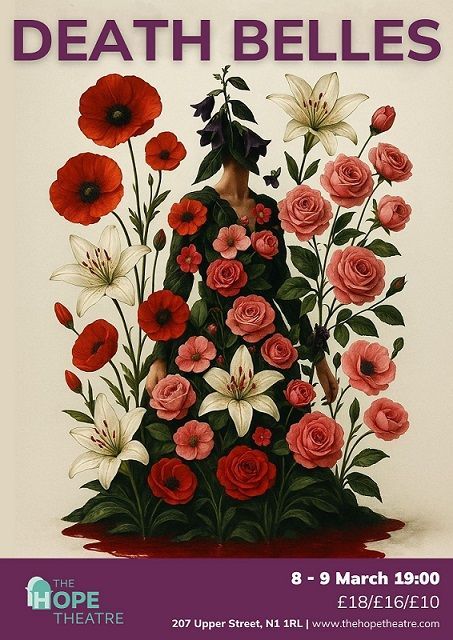REVIEW: LEE by Cian Griffin at THE PARK THEATRE 2 – 18 October 2025

'Art, and sexism, and why Pollock must have been exhausting to live with …‘ ★★★ ½
‘Contrary to popular opinion, my life did not revolve and does not revolve around Pollock.’
With that sentence, artist Lee Krasner spits out decades of weariness—and by the end of this play, you are more than feeling her pain. LEE is a meticulously researched dive into Krasner's life and work. It tackles how the whims (and rampant sexism) of the art world shape legacy, and what it means to be always viewed through the lens of one's famous partner.
The programme states that playwright Cian Griffin spent years studying his subject matter, and it shows. Griffin sets his story in 1969, when the widowed Lee Krasner (Helen Godwyn) receives a visit from her grocer's son Hank (Will Bagnall), who dreams of becoming an artist himself. The memory of Pollock stalks in and out, tossing around artistic advice and sparring with his wife. ‘You're a bitch’, he says. ‘You married me’, she replies.
Credit must go to designer Ian Nichols. He has not only fashioned the Park's studio stage into a converted barn, but has also recreated many of Krasner's paintings to dot the walls. ‘It looks like an art gallery in here!’ an audience member whispered before the show—and he was right. Everything is gleaming white with spatters of colour, and it's a pleasure to have the actors analysing actual paintings, rather than the frequently employed staring-into-space-above-the-audience's-heads.
The only downside of this careful set design is that it has left little room for the characters to truly, well, paint. Director Jason Moore repeatedly shows Lee working on her famous Portrait in Green, her husband's nagging ghost by her side. But her struggle with whether to listen to him or follow her gut would have hit harder if her brushstrokes actually changed the canvas. ‘Don't worry, just let it evolve!’ her husband groans. I wish the production had taken that advice. Would the result have been less pretty? Probably. But it would have been more interesting to watch.
The plot has echoes of John Logan's RED, which also starts with a wide-eyed beginner seeking out his artistic idol. The difference is that RED follows that relationship over years, allowing the beginner is to grow and question and push back. LEE takes place in one day, so Bagnall's Hank never gets the chance to move past the role of admiring pupil. Many of the scenes between Lee and Hank therefore feel like listening to a (very interesting) lecture: about art, and sexism, and why Pollock must have been exhausting to live with. (‘Everything about you is a cry for help.’)
LEE is at its best when it leans into the private conflicts of its characters, and here all three performers excel. Godwyn's Lee is a caustic delight: she shines both when she goes toe to toe with Pollock (Tom Andrews) and when she applies the most brutal of mentoring techniques to Hank's dreams.
Does LEE sometimes feel like an academic lecture? Yes. But when Krasner asks Hank to name one female artist being taught in school (except for Frida Kahlo) and you realize how little has changed, you think—well, if it is a lecture, it's one we should probably be attending.
Box Office: https://parktheatre.co.uk/events/lee/
Cast
Lee Krasner: Helen Godwyn
Hank: Will Bagnall
Jackson Pollock: Tom Andrews
Creative Team
Writer: Cian Griffin
Director: Jason Moore
Designer: Ian Nichols
Lighting Designer: Eliot Sheppard
Casting Director: Susie Parriss
Artwork Photographer: Giacomo Giannelli
ONBOOK THEATRE PRODUCTIONS






